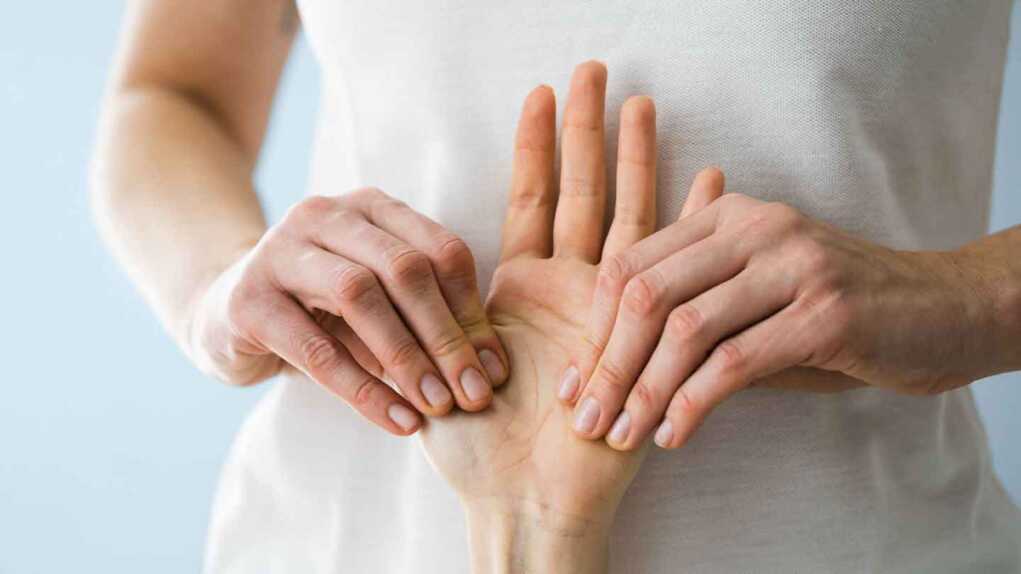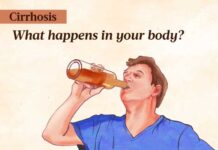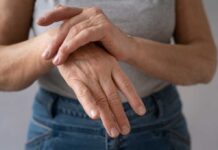
More scientific research is needed, but studies suggest this ancient healing technique may provide health benefits.
Reflexology is an ancient form of massage that’s been practiced for centuries in cultures all around the world to help with a variety of symptoms and health conditions. Today it’s used as a complementary therapy to relieve pain, sleep troubles, digestive issues, and other health concerns.
“Reflexology is a type of therapy that focuses on applying different levels of pressure to specific points on the foot,” says Victoria Bodner, a licensed massage therapist with the Cleveland Clinic. “There’s limited research on reflexology, but it is thought that different parts of the foot correlate with certain areas of the body.”
In addition to the feet, reflexologists may use pressure points on the hands and ears.

When you think of a massage, you likely picture relaxation and maybe some pain relief from sore muscles. But while reflexology is a form of massage therapy, this modality is a bit different, says Amy Kreydin, a board-certified reflexologist and reflexology educator based in Austin, Texas.
Massage therapists work specific muscle groups to relieve pain. Reflexology focuses on specific pressure points on the feet, hands, and ears, which, according to reflexology theories, correlate to pain or other symptoms elsewhere in the body, and are known as reflexology maps, per the Earl E. Bakken Center for Spirituality and Healing.
Aside from massage, reflexology shares parallels with other healing modalities.
Acupressure, a technique from traditional Chinese medicine (TCM) akin to acupuncture but without the needles, uses more than 800 reflex points (known as acupoints) found along energy lines called meridians that run the length of the body.
TCM makes use of microsystems in the ear and foot that share similarities to reflexology maps.
Possible Health Benefits of Reflexology
According to reflexology theory, points “on the hands, ears, and feet connect with different regions of the body, and as reflexology techniques are applied to these [zones], the body [generally] experiences deep relaxation and rest,” Kreydin says.

Pressure applied to these points is meant to elicit various health benefits, including relief from pain, sleep disturbances, depression, and anxiety, among other issues.
It’s important to note that current research into reflexology is limited and of variable quality, but some studies show support for its possible benefits. Here are a handful.
1. May Help Relieve Pain
The deep relaxation and rest induced by reflexology may provide pain relief, research suggests.
One uncontrolled study published in the Journal of Special Operations Medicine in 2018 included 311 patients with chronic musculoskeletal or nerve pain who were being treated at a military pain clinic in Fort Bragg, North Carolina. The participants agreed to receive 25 minutes of foot reflexology as part of their standard care. After one reflexology session, the patients filled out a small survey about their experience. When asked about the perceived benefit of the treatment, 94 percent said they believed that reflexology helped reduce their pain. Male participants, on average, reported a 43 percent reduction of pain, while female participants reported a 41 percent reduction in pain.
Another study from 2018, in the Journal of Alternative and Complementary Medicine, looked at patients who had recently undergone surgery in a general surgical unit in Israel and concluded that one 20-minute session of reflexology added to standard post-operative care was effective in reducing pain both at rest and in motion in one group, compared with a control group who didn’t receive the therapy.
Research in the December 2021 International Journal of Therapeutic Massage and Bodywork found that reflexology helped ease pain from premenstrual syndrome (PMS) in women, but it’s important to note that this study was small. More research is needed to determine if reflexology can help with PMS symptoms.
Some research has shown potential benefits of reflexology for chronic low back pain, and, separately, for help in migraine headache relief, per a study.
2. May Improve Mental Health
Reflexology is purported to induce relaxation, and some research suggests that may have a direct mental health benefit.
One meta-analysis published in September 2020 in the journal Evidence-Based Complementary and Alternative Medicine examined 26 randomized clinical controlled trials involving more than 2,300 patients. The authors found a significant improvement in adult depression, anxiety, and sleep quality, and concluded that reflexology may be a supportive therapy for mental health concerns, yet recommended additional research and longer-term studies.
The practice may also relieve mental health effects of chronic conditions and diseases.
One study, for example, looked at the effects of reflexology in patients undergoing coronary artery bypass graft surgery, a procedure intended to treat coronary artery disease. On the days following the procedure, one group of participants received foot reflexology on their left foot for 20 minutes for four days, while the other group received a gentle foot rub with oil for one minute. Participants were assessed for anxiety both before and after their treatments. The results showed that reflexology was associated with a significant decrease in anxiety, which was not seen in the control group, leading the researchers to conclude it may be a supportive therapy to help with anxiety in heart surgery patients.
Another study included 75 women with multiple sclerosis (MS) who were divided into three groups of 25. One group received reflexology treatment in addition to their standard care, another received instruction on relaxation techniques in addition to standard care, and the last group received standard care only. The results revealed that both the reflexology and relaxation groups experienced significant reduction in anxiety, depression, and stress.
A meta-analysis published in the journal Medicine in February 2023 of 11 studies on the effect of reflexology on MS patients found supportive evidence that it reduced pain and fatigue and improved quality of life.
3. May Improve Sleep
For people who have trouble sleeping, reflexology may be a supportive therapy, some research suggests.
A review published in the April 2021 Journal of Advanced Nursing analyzed 42 studies involving nearly 4,000 patients with sleep troubles. The researchers found that reflexology led to significant improvements in sleep quality compared with controls, and fewer people reported sleep disturbances.
A study of 100 menopausal women found that 15 minutes of reflexology per day for three weeks improved measures of sleep quality, compared with the control group, who did not receive the therapy.
4. May Ease Symptoms of Cancer and Cancer Treatments
Cancer and cancer treatments can take a major toll on both physical and mental health. Some research suggests reflexology has benefits as a complementary therapeutic approach to help patients cope with these effects.
In a study published in the Asian Pacific Journal of Cancer Prevention in 2019 of 57 nonmetastatic breast cancer patients undergoing chemotherapy, participants were divided into two groups: one group received two sessions weekly of reflexology for four weeks, in addition to standard care, while the other received standard care alone. At the end of the study, those who received reflexology reported significantly less fatigue than those who did not receive the treatment.
In a research review published in July 2020 in the International Journal of Cancer Management, the authors found an overall positive effect for reflexology in patients with cancer pain, compared with usual care, yet they noted that the quality of the included studies was highly variable.
5. May Ease Digestive Issues
The National Center for Complementary and Integrative Health (NCCIH) cautions that there’s currently too little evidence to determine if reflexology is an effective treatment for irritable bowel syndrome (IBS). But some scant research has found it may help with certain digestive symptoms, primarily constipation.
A small study of 19 female patients with chronic constipation, for example, determined that 94 percent of the participants reported their constipation symptoms had improved to some extent after a six-week course of foot reflexology treatments. A review and meta-analysis of seven studies published in Complementary Therapies in Clinical Practice in August 2020 concluded that foot reflexology may be an effective complementary therapy to treat constipation.
Overall, reflexology has been practiced in cultures around the world for thousands of years, and today, it’s used as a complementary therapy to potentially help with a number of ailments. Though it’s considered to be generally safe and low risk, be sure to consult your doctor or a medical practitioner if you are interested in pursuing reflexology therapy to support your overall health and wellness.
Important Notice: This article was originally published at www.everydayhealth.com by Ashley Welch where all credits are due. Medically reviewed by Justin Laube, MD
Disclaimer
The watching, interacting, and participation of any kind with anything on this page does not constitute or initiate a doctor-patient relationship with Dr. Farrah™. None of the statements here have been evaluated by the Food and Drug Administration (FDA). The products of Dr. Farrah™ are not intended to diagnose, treat, cure, or prevent any disease. The information being provided should only be considered for education and entertainment purposes only. If you feel that anything you see or hear may be of value to you on this page or on any other medium of any kind associated with, showing, or quoting anything relating to Dr. Farrah™ in any way at any time, you are encouraged to and agree to consult with a licensed healthcare professional in your area to discuss it. If you feel that you’re having a healthcare emergency, seek medical attention immediately. The views expressed here are simply either the views and opinions of Dr. Farrah™ or others appearing and are protected under the first amendment.
Dr. Farrah™ is a highly experienced Licensed Medical Doctor certified in evidence-based clinical nutrition, not some enthusiast, formulator, or medium promoting the wild and unrestrained use of nutrition products for health issues without clinical experience and scientific evidence of therapeutic benefit. Dr. Farrah™ has personally and keenly studied everything she recommends, and more importantly, she’s closely observed the reactions and results in a clinical setting countless times over the course of her career involving the treatment of over 150,000 patients.
Dr. Farrah™ promotes evidence-based natural approaches to health, which means integrating her individual scientific and clinical expertise with the best available external clinical evidence from systematic research. By individual clinical expertise, I refer to the proficiency and judgment that individual clinicians acquire through clinical experience and clinical practice.
Dr. Farrah™ does not make any representation or warranties with respect to the accuracy, applicability, fitness, or completeness of any multimedia content provided. Dr. Farrah™ does not warrant the performance, effectiveness, or applicability of any sites listed, linked, or referenced to, in, or by any multimedia content.
To be clear, the multimedia content is not intended to be a substitute for professional medical advice, diagnosis, or treatment. Always seek the advice of your physician or other qualified health providers with any questions you may have regarding a medical condition. Never disregard professional medical advice or delay in seeking it because of something you have read or seen in any website, video, image, or media of any kind. Dr. Farrah™ hereby disclaims any and all liability to any party for any direct, indirect, implied, punitive, special, incidental, or other consequential damages arising directly or indirectly from any use of the content, which is provided as is, and without warranties.








